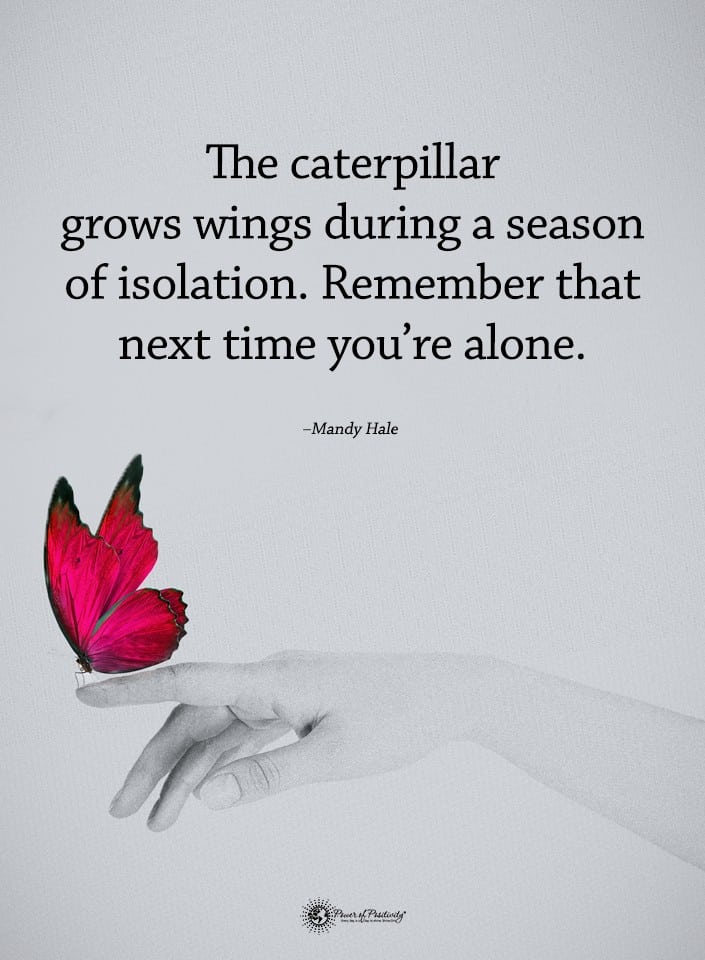Tough times are a standard part of life. No one will go through all their time on earth without experiencing at least some degree of hardship or trouble, whether physical, emotional, or a combination of both. But, we all want to be happy.
During these times, it can be challenging to maintain positive thinking. How can you remain steadfast when you feel like everything is crumbling? Beyond that, how can you feel better than just “fine”? It seems impossible, but it doesn’t have to be. Here’s how psychologists reveal four ways to be happy during tough times.
1. Learn To Promote Positive Thinking
Unfortunately, the human brain naturally fixates on negative things. This condition means that, even though it’s unproductive, you’re likely to spend much more time focusing on things that further hurt your mental health. Here are some ways you can work around that:
· Reframe Negativity
Pay attention to your thought patterns. Which ones don’t you like? Focus on reframing them. For example, if you often have a thought such as “I’m so bad at this, I should give up,” stop and reflect on it. You might say, instead, “No one starts out an expert at something, and there’s no rush for me to achieve an arbitrary standard of ‘goodness’ for this skill.” Then, swap the thought out: “This is a good challenge for me, and I’ll come out of it stronger and smarter!”. According to author Jay Shetty, who wrote “Think Like a Monk: Train Your Mind for Peace and Purpose Every Day,” this is a great way to declutter your brain.
· Use Positive Affirmations
Positive affirmations are simple, active mantras that you repeat to yourself daily, and they activate parts of your brain that make you feel good. These affirmations involve picturing yourself as the best version of you. For example, you might say, “My resilience helps me overcome difficult times” or, as mindfulness guru and yoga teacher Mandy Ingber uses, “Easy goes it.”
· Trust yourself
Tough times make the future more frightening, but that excessive worry over the future is only going to hurt you in the long run. According to emotional fitness consultant and psychologist Emily Anhalt, PsyD, it’s important to learn to trust yourself – and, therefore, Future You – to be strong, smart, and good enough to handle whatever will come next.
· List Things To Be Thankful For Daily
Gratitude is an incredibly powerful tool that reduces depression-like symptoms and helps with overall positive thinking. 10 Percent Happier cofounder Dan Harris and happiness expert Shawn Achor both agree that just two minutes of spending time before bed listing a few things you’re grateful for – even if you can only think of one – can work wonders for bringing positivity into your life.
2. Build Your Inner Strength So You Can Be Happy
To get through tough times, you need to be strong – but not in a physical way. Mental fortitude is much more crucial, so it’s the inner strength that will carry you through the worst of tumultuous situations. Here are some tips for building inner strength during hard times:
· Stay Grounded
Remind yourself that you’re here. Think about your goals, your loved ones, your current situation, and what you can do. Don’t let yourself get caught up in the spinning turmoil of the world!
· Stop Catastrophizing
It’s easy to magnify problems in your head – and this is especially true when you’re already going through tough times. Suddenly every additional inconvenience is the end of the world. Psychotherapist, teacher, and author Jeffrey Sumber, M.A., has seen this happen many times! Don’t let that happen to your thought process!
· Get Good At Visualization
Tough times can result in fears of triggers or things that remind you of those tough times. For example, fear after a bad stage performance may cause you to want to give up performing altogether. So, what’s the solution? Powerful visualization. Close your eyes and imagine the ideal scenario for you, being as evocative and goal-oriented as possible. This practice changes the narrative and, according to Icahn School of Medicine clinical instructor Terri Bacow, Ph.D., it activates the same part of your brain that would be activated by actually doing what you envision. You’re giving your brain a false memory of a positive outcome, so you’ll feel more inclined to go for it!
· Learn To Accept Bad Things
This advice sounds negative, but it isn’t. It’s about accepting that you can’t control everything. So make a list of the things you know you have no control over and make a conscious effort to let them go, recommends Urban Balance owner and therapist Joyce Marter, LCPC. You can’t change what the world is doing, but you can change how you react, how you stay strong, and how you move forward with this knowledge.
3. Take A Break
The human brain can become tired, just like its body’s muscles. This can lead to burnout and a worsening of your ability to cope with the tough times you face. It’s hard to do when you feel like you shouldn’t stop going at full speed to fight your challenges, but you need to rest to function well. Here are some ways to do so:
· Go To A Safe Place
Where’s a place that you feel safe and protected? The next time you feel yourself getting overwhelmed, go there and spend some time just resting in it. Your safe place will help you feel secure, says Laurie Nadel, Ph.D., a trauma specialist.
· Play
You know the saying “all work and no play makes Jack a dull boy”? Well, it applies in this context, too! If you overwork yourself or spend all your time doing less than enjoyable things during difficult times, you’re going to lose some degree of your emotional fitness, says Anhalt. Do a little something small and recreational during your day to break up the monotony of work. It’ll make you much more productive and help you stay positive!
· Be On The Outside Looking In
Once in awhile, take a break from being you. Relax, let emotions about tough times slip away, and try observing your situation as an outsider would. Imagine hearing about this situation from a co-worker, friend, or loved one experiencing it, suggests clinical psychologist and author John Duffy, Ph.D. You’re likely to be kinder to yourself if you consider your situation as you would consider a friend’s. It might even give you added positive insight.
· Schedule Time To Worry
Believe it or not, your brain also needs a break from being positive. Set aside a short amount of time every week where you allow yourself to worry as much as you want about your problems and the tough times you face suggests Anhalt. It lets your brain purge the negativity without the threat of an explosion.
4. Be In Touch With Yourself
If you don’t know yourself and what you need, it’s incredibly difficult to stay happy in everyday life – let alone when times are tough. Here are some ways to stay in touch with yourself:
· Engage As You Are Capable Of
You are the only person who truly knows what your emotional and mental capacity is. The problem is that, if you’re very focused on surviving, helping, or fighting during tough times, you might not be aware that you’ve crossed your threshold. Black Emotional and Mental Health Collective executive director and founder, Yolo Akili Robinson, recommends taking time to think about how you’re feeling, or write about it if you need help processing it. If you’re pouring too much of yourself into your daily efforts, dial it back. You will not be of use to yourself or anyone else if you’re burned out.
· Acknowledge Your Emotions
It can be easy to bottle up your emotions during hard times, but more than ever, you need to not only let yourself feel them but recognize and respect them. When you bottle it up or avoid thinking about it, it can boil over or explode later in a more uncontrollable way, says Duffy. Instead of ignoring how you feel, let yourself wallow in your emotions for a set amount of time. Feel the full extent of the pain they bring – and then, when it’s time to get back to work, put them aside again. Outside of that, you can also express your feelings through art, talking to others, exercising, and more. Do both of these things regularly to strike a balance between remaining rational in everyday life and letting your emotions be expressed healthily. Only once you master these skills can you truly become happy.
· Know How You Heal
All people have unique processes and paths to healing. If you’ve been through a tough time and feel guilty because you’re suffering, but everyone else seems fine, then this is for you. Your journey is unique, says Living with Depression author and clinical psychologist Deborah Serani, Psy.D. You need to let yourself heal in your way and time. Don’t compare yourself to others – you don’t know their journey, either. Social comparison can be a big factor in decreased positive thinking and can contribute to depression.
· Know When To Ask For Help (It’s important to do this to be happy)
Lots of people think that they can handle just about anything themselves. The fact, however, is that many don’t realize just how much good some help can do for them. Think about it: would you expect a loved one in your situation to handle it by themself? If the answer is no, then know that you deserve help, too. You don’t have to be alone. Just talking about your problems to a trusted and available person can help, says In Therapy author and clinical psychologist Ryan Howes, Ph.D. If you need help beyond that, communicate your needs directly to people who can help you. Don’t be afraid to talk to a mental health specialist, too.
Final Thoughts On Some Ways To Be Happy During Tough Times
Even in difficult times, you are capable of caring for yourself in such a way that you’ll be able to stay positive and get through your challenges as a stronger and better person in the end. Go through these steps, and you might even find that happiness can still be found if you learn to balance your emotions, manage your daily life, and remember that you are never truly alone. Be happy!
















 Community
Community

